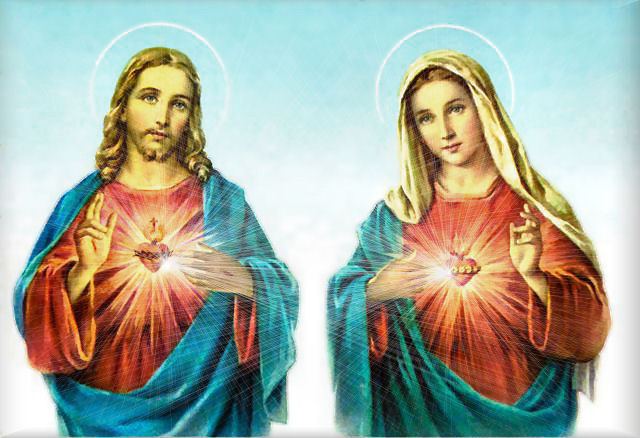Well, dear readers, a certain level of ignorance has been lifted from my mind this day. You see, my spiritual life has been not only stagnant but even painful for the past while. In my incredible ignorance, I could not perceive how I strayed from the right path; but, God has mercifully waited upon my understanding, which may be likened to an abyss of ignorance, to be opened. Perhaps the greatness of our ignorance and misery move God to show more mercy than the human mind can conceive. Here’s a little story given by a deacon in a homily which adequately illustrates my fault.

God gave a certain mystic a vision of heaven and hell. God led the mystic to two doors. Upon opening the first, he saw a round table which held a pot of stew whose aroma caused the mystic’s mouth to water. Seated around the table were a bunch of miserable individuals having very long spoons strapped to their forearms. While these spoons were capable of reaching the pot, they could in no wise bring the stew to their lips. And so, they sat around the table starved and miserable. God informed the mystic that this was hell. Then, God brought the mystic into a second room, in which there was the same table and pot of stew. Only, everyone was happy and well-fed and yet they all bore spoons in the same way that those in the first. The mystic began to wonder how these people were so well-fed. Upon asking God, God informed him that all the souls in heaven fed each other, a concept beyond those in hell.

This allegory is particularly apt for the point I wish to make. What may the stew be likened to except God? The greatest torment of hell is eternal separation from God, who is Love itself. The damned lost God because they were unable to love their fellow men. Is not every good work a kind of sharing of God’s love? This makes it abundantly clear to me that the Christian must share the knowledge and love of God with his fellow men. God wishes the Kingdom of God to grow and encompass the whole world, like the mustard seed which “grew and became a tree, and the birds of the air made nests in its branches” (Luke 13:19).

One must be careful that one does not attempt to shrink the Kingdom of God by either providing a bad example or not speaking of it. By acting in this way, a Christian seems to reduce the Kingdom of God, which is supposed to be a mustard tree, to a sad, twisted bonsai tree, which cannot grow because every effort of its roots to expand is cut off.

And this was my error: not sharing the faith enough. I did not realize this until during a drive with my younger sister. I tried to describe how important living a Christian life focused on serving God is, clearing up certain misconceptions, speaking about the mystery of the Cross in our lives, and explaining certain sayings of Padre Pio. After which I felt much better. At which point, it hit me that I had not been doing enough to serve God. That I had been keeping whatever I had learned about God, all my riches, to myself rather than offering these riches to others. In other words, I acted as the servant who buried the talent, and various sufferings quite rightly fell to my lot. One must try to remember that God is always giving, and one of the ways to fulfill the command to “be perfect as your heavenly Father is perfect” (Matthew 5:48) is by giving of oneself–whether it be talent, time, or treasure.

St. Martin of Tours seeing Our Lord clothed in the part of the cloak which St. Martin had given a beggar earlier that day.
And so, I would like to share with you some thoughts about Our Lord’s sufferings, especially as he suffered in his Sacred Heart. First, consider the immense love of God–a being who has perfect happiness and is free from all suffering–in taking on a human body in which He could suffer, and that these pains were rendered even more acute by the tenderness of His love. Even now that His Passion has ended, He still suffers in His Sacred Heart over the loss of poor sinners–as he revealed to St. Faustina, in whose heart He would try to find relief from the mortal anguish caused by the loss of souls.

Imagine what this most perfectly tender heart suffered during the time before the Crucifixion. The crowds constantly misunderstood His message. How painful this must have especially been after the feeding of the five thousand. He reveals His flesh to be true food and His blood true drink, but people only want some bread loaves. He expresses His desire to give His very self to them for their sake, to be their best and greatest Friend, and they only want to use Him for meals.

Not only did this suffering extend to being misunderstood by the crowds, but He was often misunderstood by His Apostles. How truly alone He must have felt to not have one friend to whom He could relate. Remember a time when you found yourself in a crowd of people with whom you had nothing in common, and you will have only scratched the surface of the alienation felt in this Heart which is more tender than a mother’s.

I’ll try to think of more ways to meditate on the Love of God in the future, but may this provide good material for contemplating the Sacred Heart for you.






































